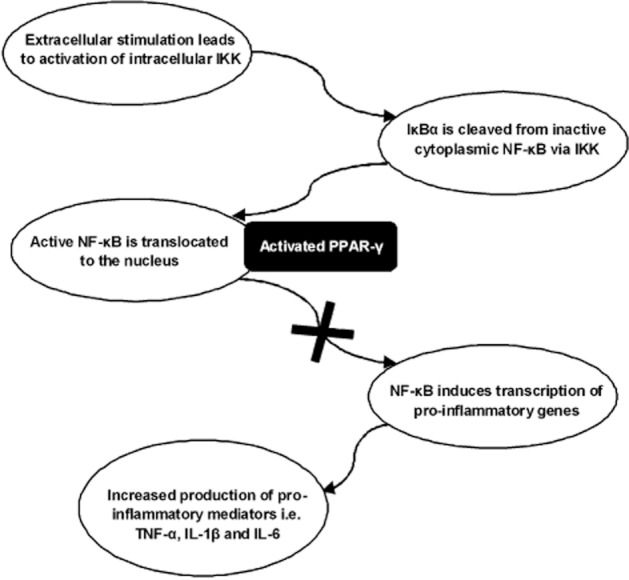Figure 1.

Anti-inflammatory effects of PPAR-γ via NF-κB transrepression (adapted from Li and Yang, 2011). In the transcriptional control of inflammation, pro-inflammatory cytokines act on membrane bound receptors to induce the activation of the enzyme IκB kinase (IKK). IKK then phosphorylates the IκBα protein bound to the inactive cytosolic NF-κB, leading to the dissociation of the two dimers and activation of NF-κB. The activated NF-κB is then translocated to the nucleus where it induces the transcription of a number of pro-inflammatory genes, leading to an increase in cytokine (TNF-α, IL-1β & IL-6 etc.) production. Following the binding of a ligand to PPAR-γ, the latter prevents the recruitment of transcriptionally active NF-κB, leading to inhibition of inflammatory gene expression and a resultant anti-inflammatory effect.
